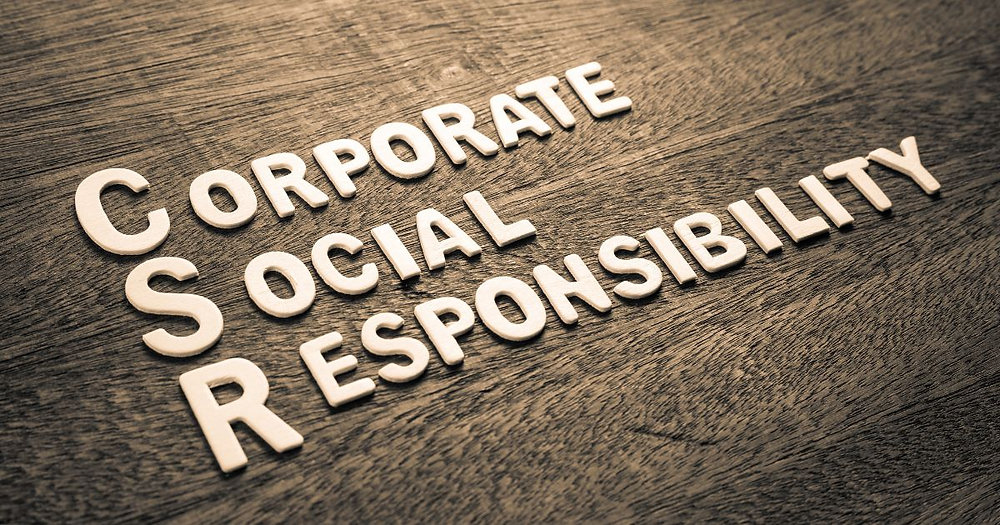Corporate Social Responsibility (CSR) has evolved from a peripheral business practice to a core strategic priority for organizations worldwide. As global health challenges like socio-economic disparities and climate change intensify, businesses are increasingly growing vulnerable, which must ensure the policy shift towards investing in health systems and health infrastructure.
Healthcare remains a fundamental human need, yet access to quality medical services is unevenly distributed. According to the World Health Organization (WHO), nearly half of the global population lacks access to essential health services. This gap is particularly stark in low-income regions, where preventable diseases claim millions of lives annually. Corporations, with their vast resources and global reach, are uniquely positioned to address these disparities through CSR initiatives. By investing in healthcare, companies can fund community health programs, support medical infrastructure, and improve access to essential medicines.
The Economic Case for Healthcare Investment
Investing in healthcare through CSR yields significant economic benefits. Healthy communities are more productive, driving economic growth and stability. For businesses, a healthier workforce reduces absenteeism, lowers healthcare costs, and enhances employee engagement. Moreover, companies that champion healthcare initiatives often see improved brand reputation, customer loyalty, and investor confidence. A focus on preventive medicine, nutrition and holistic healing significantly shifts the output goals as well. A 2023 study by McKinsey & Company found that companies with robust CSR programs focused on health and well-being outperformed their peers in financial returns by 15-20%. This underscores the tangible benefits of aligning CSR with healthcare priorities.
The Escalating Climate Crisis, UNFCCC and COP meetings
Climate change is arguably the most pressing global challenge of our time. Rising temperatures, extreme weather events, and ecosystem degradation threaten human livelihoods and economic stability. The Intergovernmental Panel on Climate Change (IPCC) warns that without immediate action, global warming could exceed 1.5°C above pre-industrial levels by 2030, leading to catastrophic consequences. CHD Group, holding UNFCCC Observership status has been amplifying the integration of climate and health goals. Corporations, as major contributors to greenhouse gas emissions, have a responsibility to mitigate their environmental impact. CSR initiatives focused on climate action can include reducing carbon footprints, transitioning to renewable energy, and supporting conservation efforts. COP meetings are increasingly lacking climate integration into thematic sectors leading to isolated plan and programs, which must change soon.
Interconnectedness of Climate and Health
Climate change and healthcare are deeply interconnected. Environmental degradation exacerbates health issues, such as respiratory diseases caused by air pollution or vector-borne diseases linked to changing ecosystems. The WHO estimates that climate change could cause an additional 250,000 deaths annually by 2030 due to heat stress, malnutrition, and infectious diseases. By prioritizing climate action in CSR, companies can indirectly improve health outcomes. For instance, reducing emissions improves air quality, lowering the incidence of respiratory illnesses. Similarly, investing in sustainable agriculture can enhance food security, addressing malnutrition in vulnerable communities. These synergies highlight the need for integrated CSR strategies that tackle both climate and health challenges.
Regulatory and Stakeholder Pressure
Governments, investors, and consumers are increasingly demanding climate accountability from corporations. Regulatory frameworks, such as the European Union’s Green Deal, impose stricter environmental standards, while investors are prioritizing Environmental, Social, and Governance (ESG) criteria. Consumers, particularly younger generations, prefer brands that demonstrate environmental responsibility. CSR initiatives focused on climate action can help companies stay ahead of regulatory requirements and meet stakeholder expectations.
The Business Case for Prioritizing Healthcare and Climate Action
Enhancing Brand Reputation and Trust
CSR initiatives in healthcare and climate action enhance a company’s reputation, fostering trust among consumers, employees, and investors. A 2024 Edelman Trust Barometer report revealed that 70% of consumers prefer brands that actively address social and environmental issues. By championing healthcare and climate initiatives, companies can differentiate themselves in competitive markets and build lasting customer loyalty.
Collaborative Partnerships
Collaboration is key to maximizing the impact of CSR initiatives. Companies must work with NGO’s holding domain expertise and not try to implement social missions through in-house staff. The passion tabled by NGOs builds on a social enterprise & mission driven focus and not commercial focus.
Embedding CSR into Core Business Strategy
To be effective, CSR must be integrated into a company’s core operations, not treated as a standalone initiative. This involves setting measurable goals, such as reducing emissions by a specific percentage or improving healthcare access for a target population. Further, company leadership must focus on preventive health programs, infrastructure centered initiatives, not mere community-based spending alone.
As global challenges intensify, corporations have a moral and strategic imperative to act. By embedding healthcare and climate action into their CSR strategies, businesses can drive meaningful change, foster stakeholder trust, and secure their long-term success. The time to act is now—future generations depend on it.

